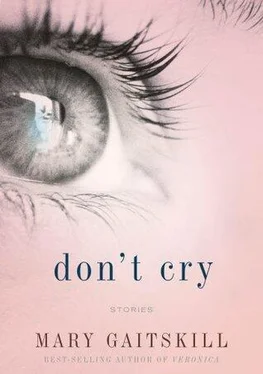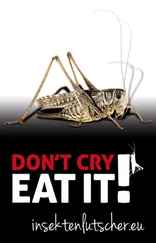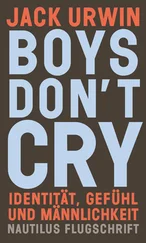That night, we went to bed early — we had to. The power was out and it got too dark to read by 8:30. We lay in the dark and talked for a long time. We talked about the jumbled streets, Zeyneb, the mountains, and the fence — which, we agreed, would cost thousands of dollars in the States. It was almost cold, and so we slept with the windows shut; the muffled street sound had a lulling effect. Katya said she was too excited to sleep, but she drifted off quickly; it was I who stirred all night, unable to sleep or to stay fully awake. The wedding music from the morning crowded my mind, the bright colors and smiles, the running girls, the laughing woman. Cars mingled with donkeys; a little boy blew a horn. Beggars came bursting out of the wedding crowd, shouting. One of them was a boy I had seen that morning, and tried not to notice, a boy with a gouged-out eye socket. We emptied our purses — I gave the gouged boy handfuls of coins — but it was not enough.
I touched the wedding rings around my neck; Thomas appeared to me and sat on the bed. I stretched out my hand to him; the street crowd vanished. I remembered Thomas inside me. Once I'd said, “I want you inside me all the time,” and he'd replied, “I will be.” Children peered around a dark corner — first they were.
Zeyneb's grandchildren; then they were unborn children waiting for Thomas and me to conceive them. Among them was the boy with the gouged eye, not begging, but waiting to be born. “I want you now,” I whispered. Thomas replied, “I am here,” but faintly Chanting sounded. It was haunting, stern, implacable as a machine made of powerful feelings cut away from their source. Rules, I thought. Punishment: it's coming. Chanting filled the suffocating room. “Shut up!” I hissed. “Just shut the fuck up!”
Katya stirred and murmured, “What?”
“This noise, what is it?”
“Zeyneb said it's from the churches. Go back to sleep; it's going to go on all day.”
That morning, Yonas drove us to the first orphanage on our list. It was Catholic. It was a compound made of cement, with a tin door, heavily patched with roofing tile, that, had it been open, would've been big enough to drive a car through. A girl pocked with open sores and dressed in filthy rags was huddled near it, a baby in her arms. I thought she would beg from us, but she didn't have the strength; she didn't have the strength to swat the flies from her. We tried to give her money — I bent down and put it in her face — but she didn't even look at it. She just looked at the door. We tried the door and found it locked. Katya knocked. No one came. I looked at the girl's baby; its eyelids were encrusted with parasites and swarmed by flies. Katya knocked again, louder and longer. Street traffic went back and forth. Again, I tried to give the girl money She stared at the door as if I weren't there. I tried to look into the baby's eyes, but its little face was numb with suffering; it didn't see me, either. Katya knocked again. We waited. I imagined children peering from behind the door. Still no one came. Finally, Katya turned away, her face very pale.
When we got back into the car, we asked Yonas if there was something we could do for the girl with the baby.
He shook his head. “I don't think we can help her. Probably she's dying — she knows she's dying and she wants her baby to be taken into the orphanage when she does.”
His tone was gentle and matter-of-fact, and there was no response to make to it.
At the next orphanage, we knocked and the door was opened. We were escorted through a barren courtyard — we heard children singing but didn't see them — and into a large office with a cement floor. A young child dressed in shabby Western clothes passed by the open door, craning her head to look at us as she did. We waited a half hour before a young woman came to tell us that the head of the orphanage was not available. We asked when she might be available and the young woman shook her head no. Katya asked if we might meet some of the children anyway; again the young woman shook her head. “They are busy,” she said.
No one of authority was available at the next orphanage, or the next one, or the next after that; all the children were busy. When we got back into the car, Katya said to Yonas, “Get us out of here. Please. Take us someplace out of the city Someplace where we can breathe.”
We drove down a street of tin shanties and stalls hung with bananas and talismans that appeared to be made of hair; a dim electrical buzzing began in my ears. “He can't breathe.” Elena, Thomas's daughter, had said this just before he died. His breath had become faster and shallower. He was still alive, but decomposition had begun — I was so used to it that it didn't even seem horrible to me. I was so used to it that, even then, when I touched him, I could feel him. His warmth, his personality, everything I had thought of as his physical energy — I still felt it when I put my hands on him; it was moving in him still. Though maybe moving out of him instead of through him.
We passed a street that looked like a dark pit letting loose its buildings and people; smiling and talking, they came out of the pit. There was garbage strewn all around. A woman in a huge hat crouched in it, selling what looked like prepared food. I thought of Thomas's old aunt Lucinda in her big hat, picking through somebody's garage sale. Lucinda had raised Thomas, because when he was seven, his mother had gotten on a bus one day and never come back. Lucinda was the only one of his family to really accept me, and she was half-senile. When Thomas showed her a picture of me days previous to her meeting me, she thought it was a picture of his mom. “Where'd you get this?” she asked.
The car thumped as the concrete ended and the rockiness began. When Thomas and I met, Elena was already a young woman; I'd see her and her brother, Frank, on holidays, and it was mostly polite. But when Thomas got sick, she rented an apartment to be near us. She was there for her father, but her feeling for me had changed then, too; I could tell it by the way her hip would touch against me when she kissed me good night.
The car thumped again as the rocks gave way to dirt. But Frank, the son — at the beginning he flirted with me, and by the end he was screaming at me about money. Especially he screamed about my having redone the bathroom with a luxury marble shower while his dad was sick — but that damn shower was one of the last things that Thomas had been coherent about. He'd wanted it, not me.
The buzz in my ear grew louder. “Look!” cried Katya. We were passing monster anthills, three feet tall, shaped like weird pricks with live streams of ant semen pouring out. The buzzing sound subsided, as if my ear had suddenly realized it was just the sound of my own body and I did not have to pay attention to it after all. Suddenly, there was a smiling lion carved on a stony hill, climbing a three-stepped stair, at the top of which a carved Coca-Cola bottle announced a refreshment stand. We parked and Yonas hired two teenagers to take us up into the mountains for three U.S. dollars.
We walked for about two hours. The landscape was more densely beautiful, wilder and less populated than the place wed gone the day of our arrival. The sky was a soft rolling gray, deep and full of round shapes amid stretches of radiant blankness. Beneath us was a valley in which grew dark clumps of bushes and trees, pale grasses, and deep patches of turned earth. We passed farmers plowing the earth with wooden plows drawn by oxen, turning up earth and chunks of stone so crystalline, they gave light back to the sun. I wished that Thomas were there to see it.
And then he was there, in the sky; I felt him there. I was flooded with memories of our first meeting: I was twenty-four and he was fifty-two. People say that young women are attracted to older men because of social power. But my response was like strong weather — not chosen, not social. I was a graduate student and he was a visiting writer, and a party was held for him in the house of some faculty eminence. It was dull, and I went out into the yard to play with somebody's dog, a chocolate-spotted terrier with a chewed-up ball that I threw until it landed in a pond with a skin of chartreuse scum. The dog and I were looking through the weeds at the water's edge when the guest of honor appeared with a drink in his hand. “Did you lose something?” he asked. He wore an elegant suit and expensive shoes. He was ripe, confident, bursting with sex. “The dog's ball,” I said. “It went in the water, I think.” And, still holding the drink, he walked into the water in his suit and his expensive shoes and got it for me.
Читать дальше












